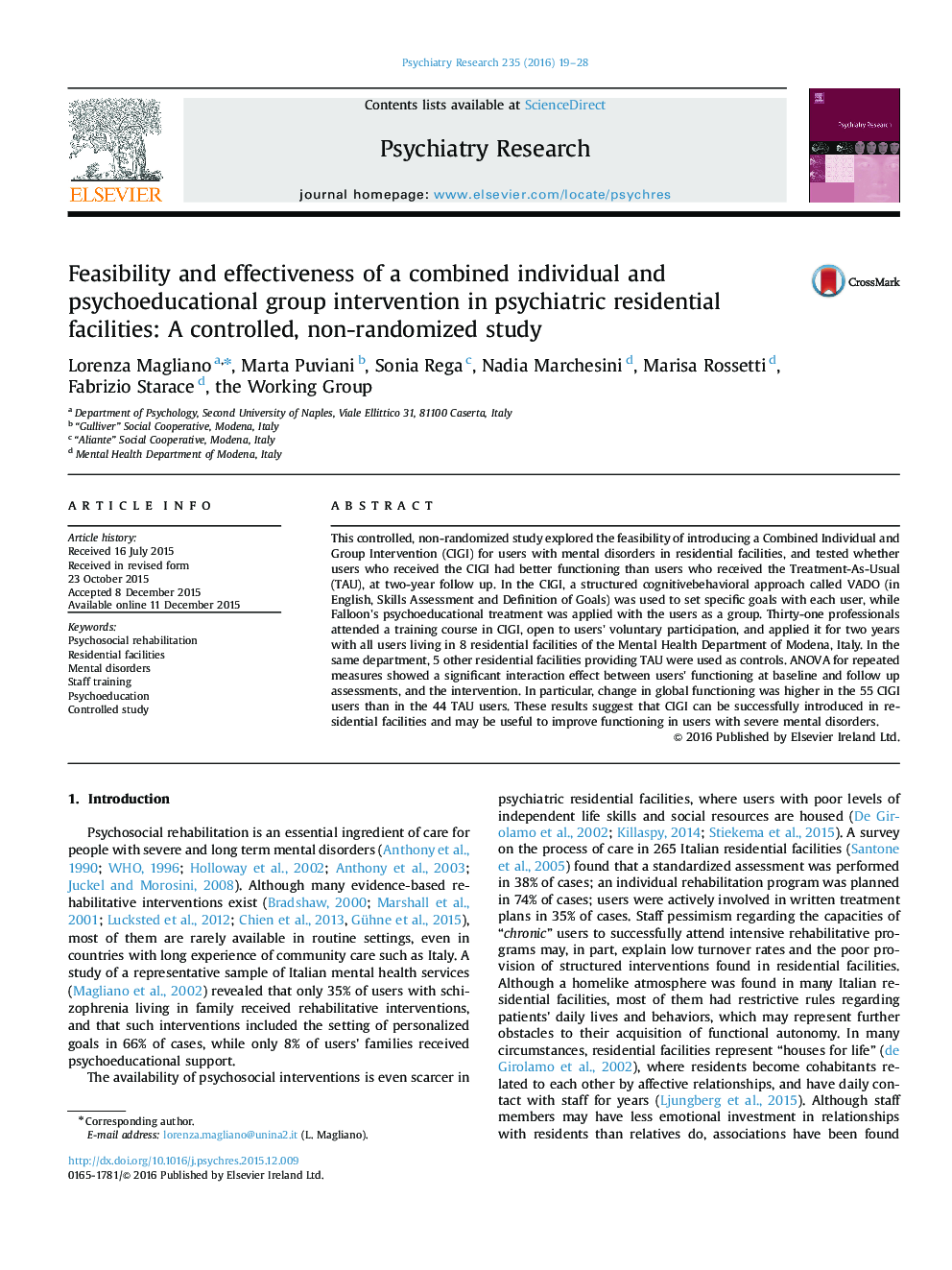| Article ID | Journal | Published Year | Pages | File Type |
|---|---|---|---|---|
| 333194 | Psychiatry Research | 2016 | 10 Pages |
•We applied a rehabilitative program in psychiatric residential facilities for two years.•The program Combined Individual and psychoeducational Group Intervention (CIGI).•Residential facilities' staff attended a modular training course in CIGI.•We examined functional changes in users who received CIGI for two-years vs. controls.•CIGI improved functioning in users with a long history of mental disorders.
This controlled, non-randomized study explored the feasibility of introducing a Combined Individual and Group Intervention (CIGI) for users with mental disorders in residential facilities, and tested whether users who received the CIGI had better functioning than users who received the Treatment-As-Usual (TAU), at two-year follow up. In the CIGI, a structured cognitivebehavioral approach called VADO (in English, Skills Assessment and Definition of Goals) was used to set specific goals with each user, while Falloon's psychoeducational treatment was applied with the users as a group. Thirty-one professionals attended a training course in CIGI, open to users' voluntary participation, and applied it for two years with all users living in 8 residential facilities of the Mental Health Department of Modena, Italy. In the same department, 5 other residential facilities providing TAU were used as controls. ANOVA for repeated measures showed a significant interaction effect between users' functioning at baseline and follow up assessments, and the intervention. In particular, change in global functioning was higher in the 55 CIGI users than in the 44 TAU users. These results suggest that CIGI can be successfully introduced in residential facilities and may be useful to improve functioning in users with severe mental disorders.
